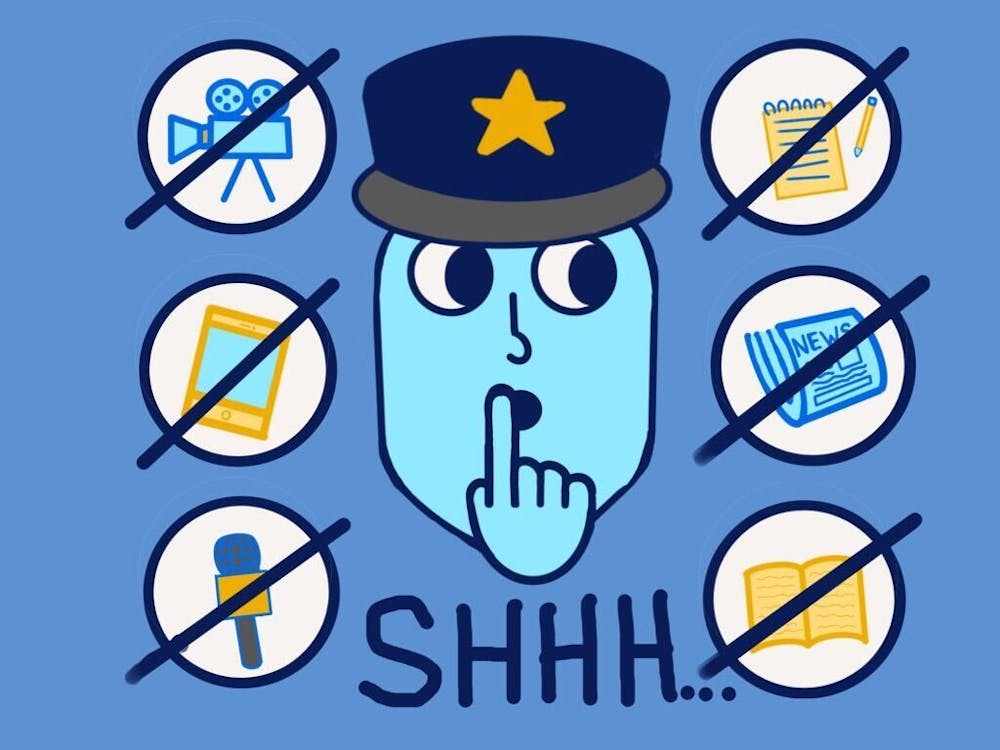The murder and brutalization of people of color across the U.S. has clearly brought the country to a breaking point. As riots and protests rage on across America, I’m incredibly aware that, as a white person, my opinion does not extend beyond my actions taken in the name of ending police terror at all costs.
Those of us with privilege must stand with the black community, whatever they choose to do to bring about change. It’s on you to listen, but it’s nobody’s job to teach you. For any white people who have maintained ignorance this long, especially if they’re in higher education, that ignorance is willful, and it's time to put in some actual effort and learn.
However, as a journalism student, I should be allowed to have a developed opinion on what role the media should play among the civil unrest. The time for non-bias and neutrality on this issue is dead. To attempt to appease a nation that uses its police like a personal militia, or Americans who harbor so much hate they refuse to understand the atrocities taking place by remaining “neutral,” is spineless.
What’s unfolding in our cities is far from a political issue. It’s a simple example of right and wrong. This will not be solved by “voting,” something the grossly privileged and disconnected still see as a viable option, including political leaders. This goes beyond politics. Black Americans have been murdered by police with no punishment under every single president, senator and governor we have ever had, and it’s time to listen to the black community and force change. A ballot box cannot undo hundreds of years of state-sponsored violence.
A journalist expressing the belief that “Black Lives Matter” is not a breach of credibility — it’s taking a stand on the right side of history. Condemning a president who called for the murder of protesters in his own nation is not “showing bias” — it’s refusing to continue accepting the institutional oppression and procedural genocide that has been at the core of our nation’s identity since its inception.
There are no politics when a black man is murdered in cold blood or dragged away and handcuffed after peacefully pleading for sympathy and understanding, or when protesters are run over by a NYPD police vehicle or any of the horrible footage dominating social media since protests began.
Beyond the violence and brutality, police have actively silenced journalists trying to cover the protests through procedure and physical attacks.
It is still up to journalists to factually report the events unfolding, but we no longer need analysis and punditry that seeks to voice both sides of a right and wrong issue. Headlines like “Trump pushes governors to get tough on violent protesters,” or the New York Times’ “As chaos spreads, Trump vows to end it now,” are cowardly and serve the interest of the oppressors.
Reporters and newspapers have often been blamed for falling to properly cover what’s happening in our country, which is an unfair and uninformed criticism. In many cases, the videos the “media won’t show” are produced by brave, local journalists risking abuse by their own state. When massive national papers that have the power to control the public narrative refuse to even directly acknowledge they will stand against a racist system, they fail all of us.
Young and aspiring journalists should not leave their views on this at the door when they enter their profession. These ideas should be used to connect with communities and share the stories revolving around race that deserve to be heard. It’s time for overwhelmingly white newsrooms to seek the voices of people of color and follow their lead on covering these stories. We should have no interest in the attempts of white men who attended Ivy league institutions to properly express the turmoil and tragedy unfolding in our borders. Remaining neutral will put reporters nowhere but on the side of the oppressors, not the oppressed.
Noah Wright is a rising senior studying strategic communication at Ohio University. Please note that the views and opinions of the columnists do not reflect those of The Post. Want to talk to Noah? Tweet him @NoahCampaign.






